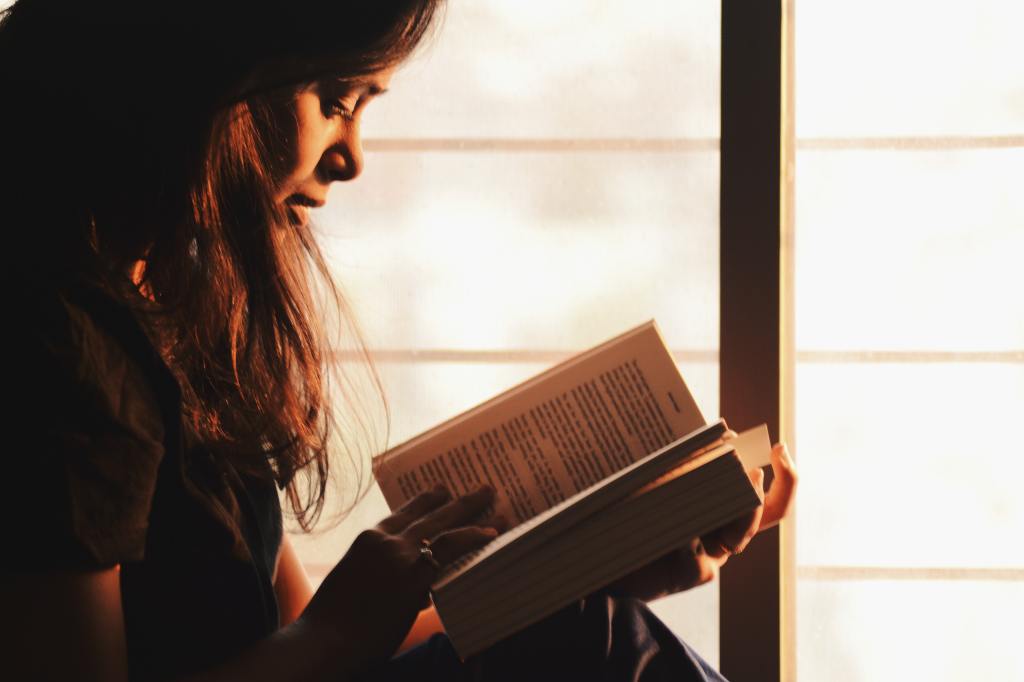
For many readers, nonfiction can be an intimidating genre to break into. However, nonfiction can often help people to change their habits, or keep them informed on past, current, and future issues. Here, I have collected some nonfiction books I have loved and that have affected the way I think, act, and interact with others. So dive in. I promise, these books will change your life.
- The Sweetness of a Simple Life by Diana Beresford-Kroeger
Diana Beresford-Kroeger draws on her life as a botanist and scientist to teach a better way of life in her 2013 novel, The Sweetness of a Simple Life. Beresford-Kroeger is a Canadian citizen who grew up in Ireland learning ancient Celtic wisdom. She applies these principles of natural connection, language, and kindness to modern-day life with a series of guidelines for how to live a “simple life.” This book includes tips on a wide range of things, including how to build a bird’s nest, how to use leftover meat bones to fertilize a garden, and even how to reduce the chance of a heart attack with food. Beresford-Kroeger’s other works, The Global Forest and To Speak for the Trees, expand on her love of nature and Celtic wisdom.
- Radical Curiosity by Seth Goldenberg
While the market of pop science books is endlessly diluted by excess, this 2022 book was a standout in its emphasis on curiosity as society’s biggest kept secret. Seth Goldenberg makes the argument that curiosity is in short supply in the modern day, but harnessing its power could radically change the way we view our impact on society. As a more recent release, this book draws on the experience of the COVID-19 pandemic as a catalyst for “looking at the system in a fundamentally new way.”
- Hood Feminism by Mikki Kendall
Hood Feminism is a breakthrough in feminist texts that reframes the conversation towards marginalized groups that created it in the first place. Mikki Kendall outlines the feminist movement as it was developed by and then shunned from BIPOC (Black, Indigenous, people of color) women. Each essay in this collection reflects on how BIPOC women have continuously been left out of the mainstream white feminist movement, and how to change this. Kendall shows how the combination of racism, poverty, and hypersexualization of BIPOC women has been at the forefront of this divide, and how intersectionality is a more complex issue than mainstream feminists realize.
- How To Do Nothing by Jenny Odell
As deceiving as the title may seem, this book does not teach you how to do nothing. Instead, it teaches you how to slow down, look outside your window every now and again (or even go for a walk in the park), and distance yourself from what Jenny Odell labels “the attention economy.” Odell makes the argument that in modern society, it has become too easy to get swept up in “the attention economy” of today, with social media, the Internet, and technology at the forefront of our lives. Throughout the book, Odell develops an action plan for taking back our time that does not ignore the complexities of modern-day life and the importance of technology. Instead, Odell shows how we can disconnect from the negative effects and turn the rest into positive action.
- Trick Mirror by Jia Tolentino
Trick Mirror was one of the most popular books when it was released in 2019, and for good reason. Expanding on previous essays and adding new ones, journalist Jia Tolentino gives a complex picture of the last two decades through a series of social and cultural questions that many people can relate to. In one essay, Tolentino focuses on the idea of “always optimizing,” wherein people, especially millennials, are constantly trying to find the best use of their time instead of taking a moment alone (similar to Odell’s theory in How to Do Nothing). In another, Tolentino tells the story of a falsified 2014 Rolling Stone article of a sexual assault case that happened at her alma mater, the University of Virginia. Tolentino covers a lot of ground in these essays, but ultimately does a great job of tying together underlying themes of social and cultural touchstones.
- Braiding Sweetgrass by Robin Wall Kimmerer
Similar to The Sweetness of a Simple Life, this 2013 book serves as a part-memoir and part-instruction guide on how to live a more environmentally-friendly life. Botanist and Potawatomi scientist Robin Wall Kimmerer draws on a lifetime of studying plants, indigenous culture, and her own personal story of motherhood. Wall Kimmerer’s love of nature is infectious, and with each page, she manages to inspire the reader to do better. Her argument for a renewed bond between people and nature relies on a reciprocal culture of gratitude, in which people understand that they are indebted to the natural world in the same way as it is to them.
Happy reading!
-Hannah Eaton, CambridgeEditors Team
